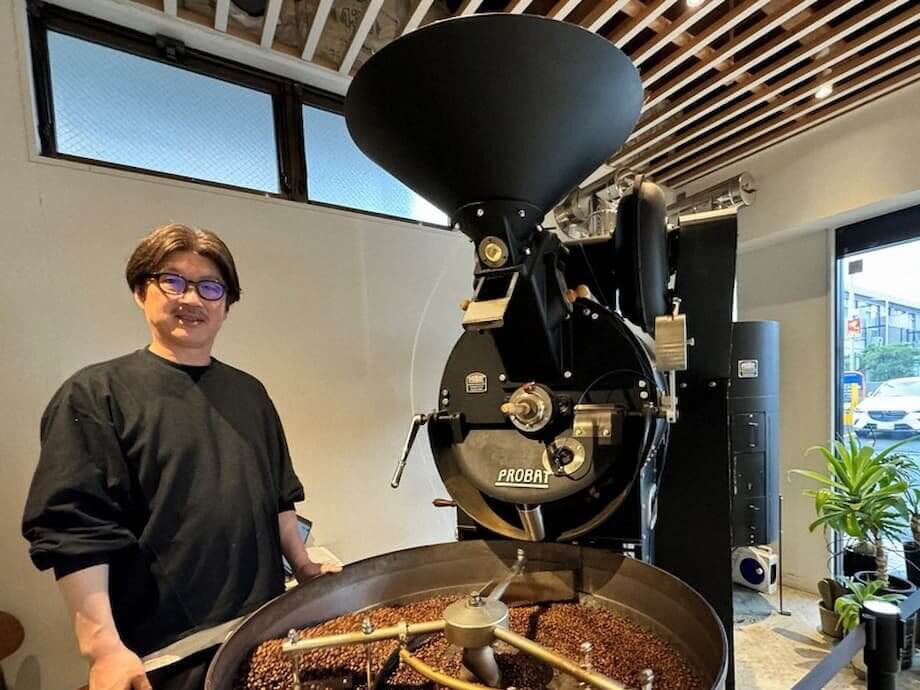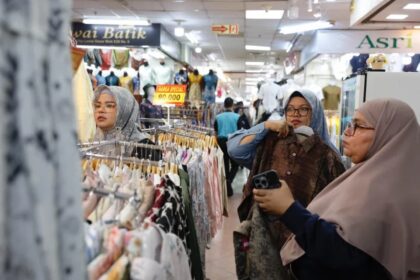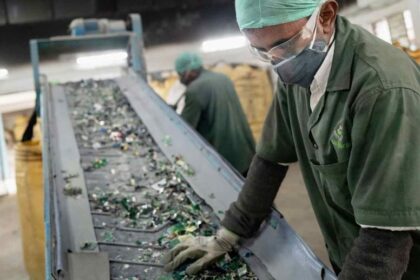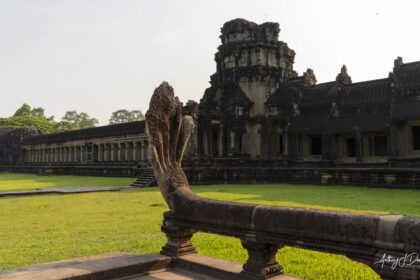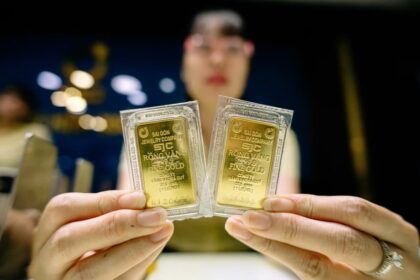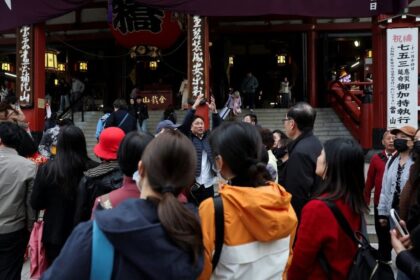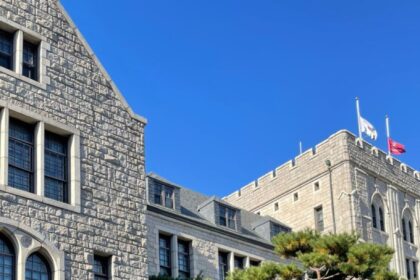Morioka: Japan’s Unexpected Coffee Capital
Morioka, the capital of Iwate Prefecture in northern Japan, has quietly cultivated a reputation as one of the country’s most passionate coffee cities. With its picturesque old streets, walkable cityscape, and a unique blend of tradition and innovation, Morioka has become a magnet for coffee lovers—both local and international. In recent years, this mid-sized city has drawn global attention, ranking second only to London on The New York Times’ prestigious “52 Places to Go” list in 2023. But what lies behind Morioka’s deep-rooted coffee culture, and how has this unassuming city brewed such a strong identity around the humble cup?
How Coffee Became Part of Morioka’s DNA
For many in Morioka, coffee is more than a beverage—it’s a daily ritual and a social glue. According to Japan’s Ministry of Internal Affairs and Communications, households in Morioka spent an average of 8,553 yen (about $58) per year on coffee between 2022 and 2024, ranking sixth nationwide. This is no statistical fluke: previous years have consistently placed Morioka among Japan’s top coffee-consuming cities.
Local experts point to the city’s longstanding tradition of tea drinking as the foundation for its embrace of coffee. Kazuhiro Nagasawa, owner of the acclaimed Nagasawa Coffee, explains that the habit of gathering over drinks is deeply ingrained in daily life. During the COVID-19 pandemic, while many eateries struggled, Nagasawa Coffee saw a surge in coffee bean sales for home brewing. As Nagasawa put it,
“At this point, it’s a culture.”
Residents simply shifted their coffee rituals from cafes to their homes, underscoring how essential coffee has become to the city’s rhythm.
From Kissaten to Specialty Cafes: A Timeline
Morioka’s coffee culture traces its roots to the postwar era, when kissaten—traditional Japanese coffee houses—became popular gathering spots. Over time, these retro establishments have been joined by a new generation of specialty cafes, each with its own personality and approach to coffee. The result is a vibrant, diverse scene where old and new coexist, and where the act of drinking coffee is as much about atmosphere and connection as it is about flavor.
What Makes Morioka’s Cafes Unique?
One of Morioka’s defining features is the sheer density and variety of its coffee shops. Visitors are often struck by how many cafes are packed into the city’s compact center, especially along Odori Street and its surrounding alleys. From riverside terraces to jazz-themed hideaways, each spot offers a distinct experience.
Architectural and Cultural Flourishes
Many of Morioka’s cafes are housed in buildings that blend Western and Japanese architectural styles, reflecting the city’s Taisho-era heritage. The interiors are often spacious and thoughtfully designed, with unique touches that set them apart from the cookie-cutter chains found elsewhere. For example, Nagasawa Coffee’s new location features a six-meter terrazzo table designed by Arii Irie Architects, serving as both a communal gathering point and a showcase for the roasting process. The café’s vintage 1960s German roaster is a centerpiece, visible from the street and symbolizing the city’s commitment to quality and craft.
Other notable spots include:
- Café Mama: Founded in 1932, it’s Morioka’s oldest coffee shop and doubles as an art gallery.
- Tea House Liebe: Established in 1971, this retro café offers a Showa-era atmosphere and a wide selection of teas and coffee classics.
- Coffee and Utsuwa Watanabe: A hideaway café known for its handmade ceramics and beans roasted in nearby Hiraizumi Town.
- Tea and Tetsubin Engawa: Brews coffee using traditional Nanbu Tekki iron kettles, giving the coffee a distinctive smoothness.
- Café Jazz Kaiunbashi no Johnny: A jazz-themed café filled with records and memorabilia, closely linked to the Akiyoshi Toshiko Jazz Museum.
This blend of tradition and innovation is a hallmark of Morioka’s coffee scene, offering something for every palate and mood.
International Spotlight: The New York Times Effect
Morioka’s coffee culture was thrust onto the world stage in January 2023, when The New York Times ranked the city second on its annual “52 Places to Go” list. The selection, recommended by American writer Craig Mod, surprised many—including locals—who had long seen Morioka as a hidden gem rather than a global destination.
The impact was immediate. Restaurants and cafes featured in the article, such as Nagasawa Coffee and Azumaya (famous for its wanko-soba noodles), saw a surge in visitors. Online orders for coffee beans spiked, with Nagasawa Coffee reporting over 100 orders a day from outside the prefecture. Even a jazz café that had closed its doors reopened to meet renewed demand. The city’s tourism office responded by launching a new website, posting in English on social media, and creating a digital map in seven languages to help visitors navigate 119 local attractions and eateries.
Craig Mod, who has spent years exploring Japan’s lesser-known cities, explained his choice by highlighting Morioka’s walkability, creative community, and the sense of “yoyu”—a Japanese term for emotional margin or breathing space. In his words,
“Morioka is a city where residents can thrive, and even its youth plan to return.”
The city’s selection was not about a single meal or landmark, but about the overall feeling of health, creativity, and community that permeates daily life.
Festivals and Community: Celebrating Coffee Together
Morioka’s love for coffee is not confined to its cafes. The city hosts the annual Iwate Coffee Festival, a multi-day event that draws roasters, food vendors, and coffee enthusiasts from across Japan. Held in the Morioka History and Culture Museum Square and nearby Iwate Park, the festival features over 30 acclaimed roasters, 75 food trucks and market stalls, and a variety of tasting experiences. Admission is free, but coffee tastings require tickets, which come with collectible souvenirs like drip bags and demi-cups.
The festival is more than just a showcase for great coffee—it’s a celebration of community and craftsmanship. In 2024, the event included the Iwate preliminary round of the Japan AeroPress Championship, highlighting the city’s role in the national coffee scene. Kazuhiro Nagasawa, recognized by global coffee media Sprudge as one of the “20 people who are changing the world through their coffee work,” has played a key role in organizing and supporting the festival.
These communal events reinforce the idea that coffee in Morioka is about more than taste—it’s about connection, creativity, and pride in local culture.
Why Does Morioka’s Coffee Culture Matter?
Morioka’s coffee scene is more than a local curiosity—it offers a model for how mid-sized cities can thrive by nurturing independent businesses, fostering community, and embracing both tradition and innovation. In a country where rural depopulation and aging populations are pressing concerns, Morioka stands out as a place where young people want to return, where generational businesses continue, and where creativity flourishes.
International recognition has brought new visitors and economic benefits—one estimate put the “Morioka shock” at nearly $98 million in impact—but local business owners remain committed to their roots. As one jazz café owner noted, the increased attention is welcome, but the essence of Morioka’s hospitality and quality will not change.
Craig Mod and other advocates argue that Japan’s future as a tourism-based nation depends on spreading visitors beyond the usual hotspots and encouraging deeper, more meaningful travel experiences. Morioka, with its walkable streets, welcoming cafes, and sense of “yoyu,” exemplifies this approach. The city’s efforts to promote itself in multiple languages and create accessible resources for tourists reflect a forward-thinking attitude that balances growth with preservation of local character.
In Summary
- Morioka, Iwate Prefecture, is one of Japan’s top cities for coffee consumption, with a deeply rooted culture of both tea and coffee drinking.
- The city’s coffee scene blends retro kissaten and innovative specialty cafes, each with unique interiors and atmospheres.
- International recognition from The New York Times in 2023 brought a surge of visitors and global attention to Morioka’s coffee culture.
- Annual events like the Iwate Coffee Festival celebrate the communal and creative aspects of coffee in Morioka.
- Local business owners and residents value authenticity, community, and quality, maintaining their traditions even as tourism grows.
- Morioka’s story offers lessons for other cities on how to thrive by supporting independent businesses, fostering community, and embracing both heritage and innovation.


